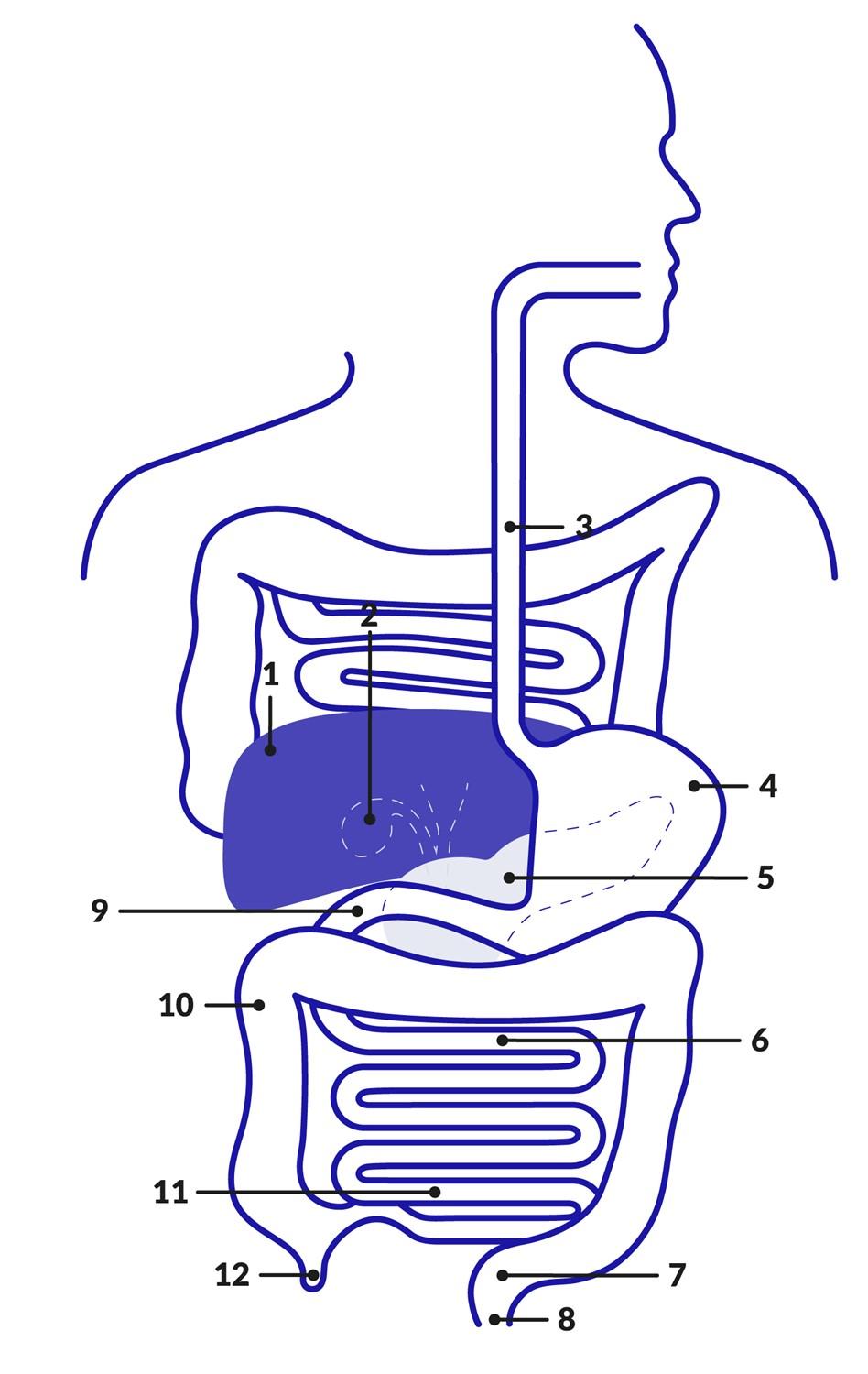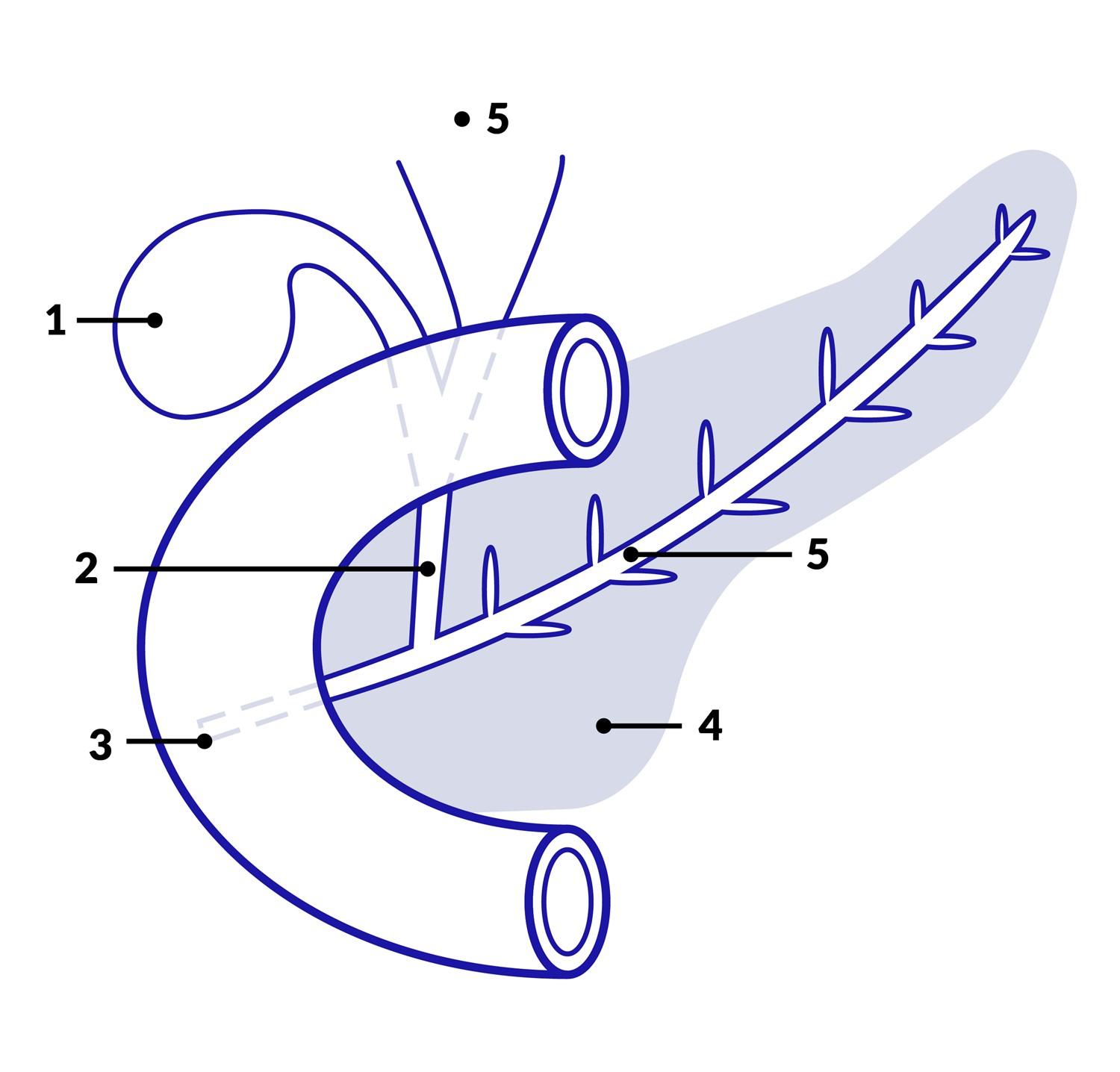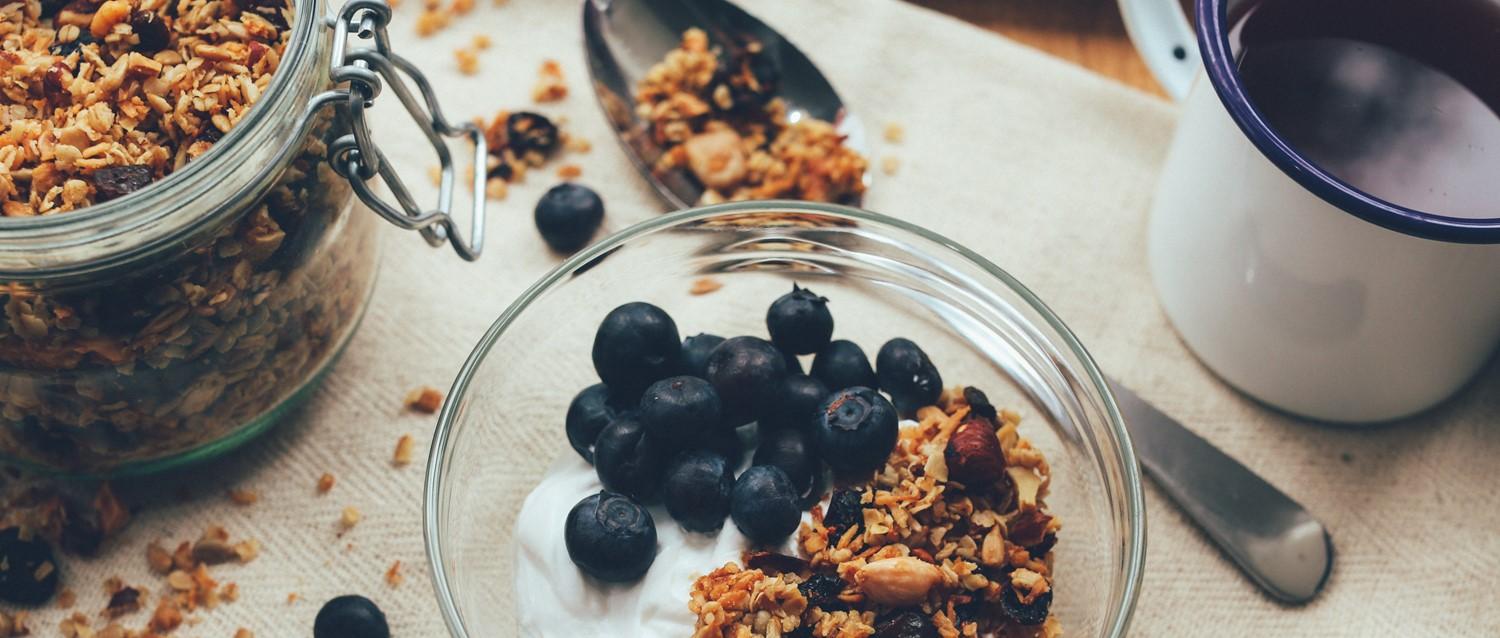
Que fait le pancréas ?
Peer reviewed by Dr Adrian Bonsall, MBBSAuthored by Dr Roger Henderson, MBBSOriginally published 30 May 2018
- TéléchargerTélécharger
- Partager
Le pancréas est un organe situé dans la partie supérieure du ventre (abdomen). Les substances chimiques (enzymes) fabriquées par les cellules du pancréas passent dans l'intestin pour aider à digérer les aliments. Les hormones insuline et glucagon sont également fabriquées dans le pancréas et contribuent à réguler le taux de sucre dans le sang.
Dans cet article :
Poursuivre la lecture ci-dessous
What is the pancreas?
The pancreas is an organ which is about the size of a hand.
Cross-section of the gut

Clé | |
|---|---|
1. Liver | 7. Rectum |
Where is the pancreas?
The pancreas is in the upper tummy (abdomen) and lies behind the stomach and guts (intestines). The pancreas has a connection via a tube (duct) to the first part of the gut (known as the duodenum) which is connected to the stomach. This connecting duct allows the chemicals (enzymes) produced by the pancreas to pass into the intestines.
Poursuivre la lecture ci-dessous
Que fait le pancréas ?
Le pancréas a deux fonctions principales :
To make digestive chemicals (enzymes) which help us to digest food. Enzymes help to speed up your body's processes.
To make hormones which regulate our metabolism. Hormones can be released into the bloodstream. They act as messengers, affecting cells and tissues in distant parts of your body.
About 90% of the pancreas is dedicated to making digestive enzymes. Cells called acinar cells within the pancreas produce these enzymes. The enzymes help to make proteins, fats and carbohydrates smaller. This helps the guts (intestines) to absorb these nutrients. The acinar cells also make a liquid which creates the right conditions for pancreatic enzymes to work. This is also known as pancreatic juice. The enzymes made by the pancreas include:
Pancreatic proteases (such as trypsin and chymotrypsin) - which help to digest proteins.
Pancreatic amylase - which helps to digest sugars (carbohydrates).
Pancreatic lipase - which helps to digest fat.
Approximately 5% of the pancreas makes hormones which help to regulate your body's metabolism. These hormones are made by several different cells which clump together like little islands (islets) within the pancreas. The islets are called islets of Langerhans and there are about one million islets dotted about in an adult pancreas. The hormones made by the cells in the islets of Langerhans within the pancreas include:
Insulin - which helps to regulate sugar levels in the blood.
Glucagon - which works with insulin to keep blood sugar levels balanced.
Somatostatin - which helps to control the release of other hormones.
Gastrin - which aids digestion in the stomach.
How does the pancreas work?
The pancreas

Clé |
1. Gallbladder |
The digestive chemicals (enzymes) made by the pancreas are controlled by the body's nervous system and its hormones. When the body senses food in the stomach, electrical signals are sent to the pancreas via nerves. These signals stimulate the pancreas to put more enzymes into the pancreatic juice. Acinar cells respond by increasing the amount of enzymes they produce. The enzymes leave the cells and pass into tiny tubes (ducts). These ducts join together like branches of a tree to form the main pancreatic duct. The pancreatic duct drains the enzymes produced into the first part of the gut, known as the duodenum.
The enzymes are made in an inactive form so that they don't digest the pancreas itself. Once they enter the intestines the enzymes are activated and can begin breaking food down.
The main hormones released by the pancreas are insulin and glucagon. These hormones help to regulate the amount of sugar found in the blood and the body’s cells. The body's cells need energy to function. The most readily available form of energy is glucose, a type of sugar. Insulin helps to take glucose from the blood into the cells themselves. This allows the cells to function properly. Glucagon stimulates cells in the liver to release glucose into the blood when levels are low.
The pancreas carefully monitors the level of glucose in the blood. When levels of glucose are high in the blood, cells within the pancreas make insulin. Insulin gets released into the bloodstream where it causes glucose to move into cells. This decreases the amount of glucose in the bloodstream, lowering blood sugar levels. Low blood sugar levels stimulate the pancreas to make glucagon. Glucagon works on cells in the liver, causing the release of glucose. If sugar levels in the blood rise above normal, the pancreas stops releasing glucagon. Insulin may then be released to balance the system again.
This system helps to keep the level of glucose in your blood at a steady level. When you eat, levels of sugar in your blood rise and insulin helps to bring them down. Between meals, when your sugar levels fall, glucagon helps to keep them up.
Poursuivre la lecture ci-dessous
Some disorders of the pancreas
Sélection de patients pour Autres troubles digestifs

Santé digestive
Comment votre intestin affecte votre santé globale
We all know that when things aren't right with our digestion we can feel generally unwell. But evidence is mounting that the gut - which contains 70-80% of our immune tissue - could have an even greater impact on our overall health than once thought. It's time to listen to our gut feelings.
par Gillian Harvey

Santé digestive
Hernie
Une hernie survient lorsqu'une partie interne du corps traverse un point faible de la paroi du muscle ou du tissu qui l'entoure. Cette brochure traite des hernies abdominales qui se produisent lorsqu'une faiblesse de la paroi du ventre (paroi abdominale) entraîne le gonflement d'une partie du contenu de la cavité abdominale. Certaines hernies doivent être traitées par une opération. Il existe aujourd'hui différents types d'opérations, qui donnent généralement de bons résultats.
par le Dr Toni Hazell, MRCGP
Historique de l'article
Les informations contenues dans cette page ont été évaluées par des cliniciens qualifiés.
30 May 2018 | Originally published
Auteur: :
Dr Roger Henderson, MBBSExaminé par des pairs
Dr Adrian Bonsall, MBBS

Demandez, partagez, connectez-vous.
Parcourez les discussions, posez des questions et partagez vos expériences sur des centaines de sujets liés à la santé.

Vous ne vous sentez pas bien ?
Évaluez gratuitement vos symptômes en ligne